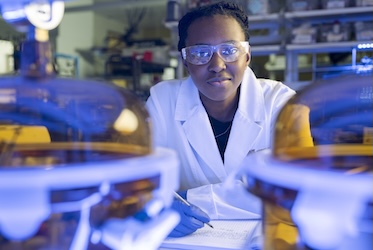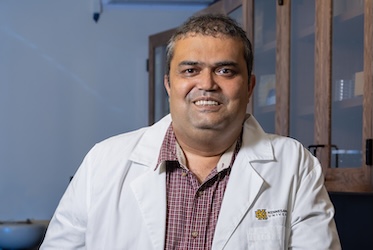
Kennesaw State research: COVID surges caused higher mortality among non-COVID patients
KENNESAW, Ga. | Jan 19, 2023

According to assistant professor of economics Weiwei Chen, who began her research when COVID peaked during the summer of 2020, non-COVID patients had poorer outcomes in hospitals overwhelmed with large numbers of COVID cases. Based on the research, the odds of an in-hospital death were 1.2 times higher among those non-COVID patients than before the onset of the pandemic. The study was published in November in The American Journal of Managed Care.
“Multiple factors contributed to the increase in mortality rates with COVID spikes, but resource constraints seem to be the main reason, which includes, for example, healthcare worker burnout, staff shortages and reduced bed space,” said Chen.
While the research was not positive during the early part of the pandemic, Chen said that some patterns observed during the period may suggest ways to alleviate overcrowding and falling patient outcomes in the future. For example, discharging hospital patients to home care grew during the pandemic, while discharging to skilled nursing facilities declined. It shows the promise of home health care as an alternative care option during the pandemic.
“A major implication is that it is going to be very important to monitor patient outcomes at hospitals during pandemics in real time, even though it may be very difficult,” she said. “That is the best way to ensure the best possible patient outcomes.”
Chen’s research used data from a large insurance claims clearinghouse, which covered hospitals nationwide. She said she hopes the implications of the research include better preparation for future pandemics or large-scale illnesses.
“It’s important research like this that makes me especially proud of the faculty we have here in Coles College,” said Robin Cheramie, dean of the Coles College of Business. “Dr. Chen's research challenges us to learn from the pandemic and includes key insights into what can be done to lessen the most dramatic effects of a large-scale event in the future. She is among many KSU faculty aiming to make a difference through research, not just for the sake of research, but the community as a whole.”
– Thomas Hartwell
Photos by Matt Yung
Related Stories

Kennesaw State students to present research at Symposium of Student Scholars

Chemistry student engaged in sustainable catalyst research through Kennesaw State's First-Year Scholars program

Kennesaw State researchers awarded Department of Energy grant to investigate materials that boost energy-efficient technologies

Kennesaw State professor honored by American Accounting Association as 2025 Presidential Scholar
A leader in innovative teaching and learning, Kennesaw State University offers undergraduate, graduate, and doctoral degrees to its more than 47,000 students. Kennesaw State is a member of the University System of Georgia with 11 academic colleges. The university’s vibrant campus culture, diverse population, strong global ties, and entrepreneurial spirit draw students from throughout the country and the world. Kennesaw State is a Carnegie-designated doctoral research institution (R2), placing it among an elite group of only 8 percent of U.S. colleges and universities with an R1 or R2 status. For more information, visit kennesaw.edu.














